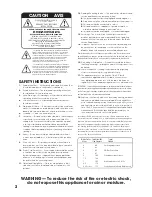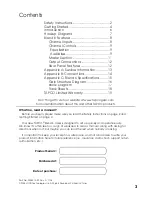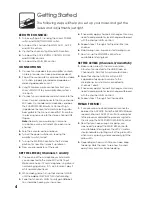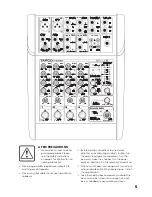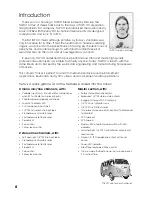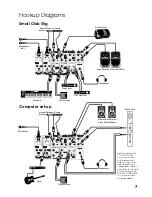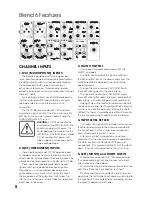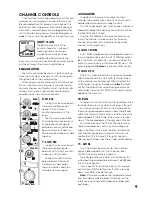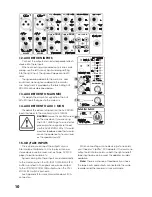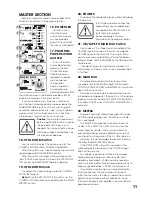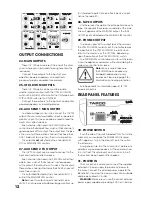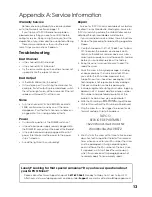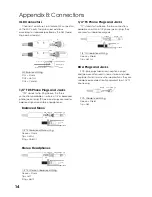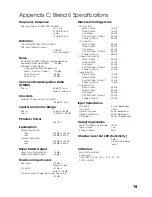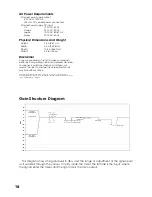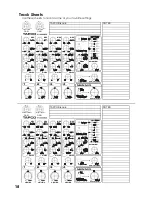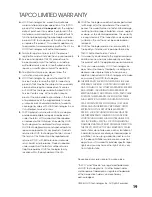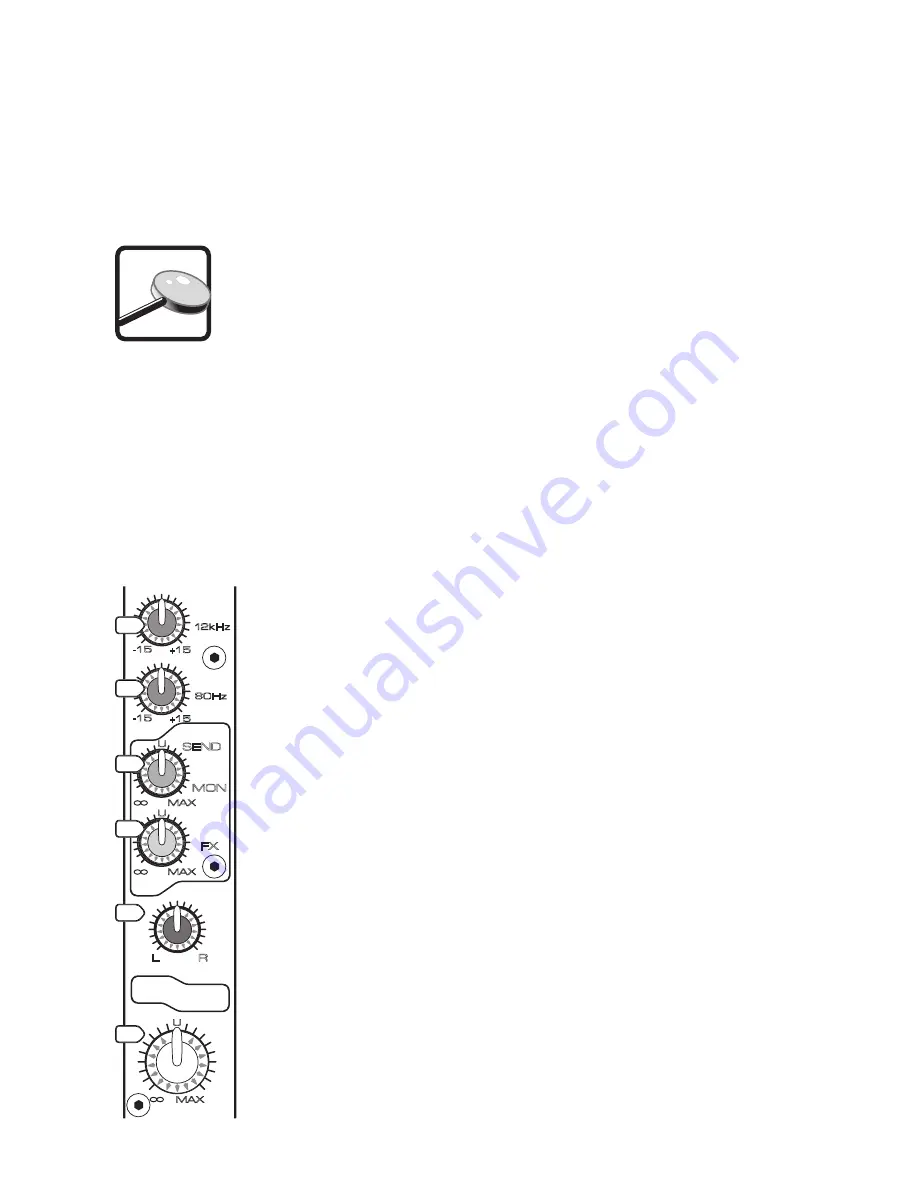
9
CHANNEL CONTROLS
Channel strips 1 and 2 allow adjustment of EQ, Pan
and Level for mono signals. Channel strips 3/4, and
5/6 allow adjustment of stereo or mono signals. The
output from each strip passes onto the left and right
main mixes. Auxiliary signals can be tapped off and
sent to monitors or processors. The block diagram on
page 17 shows how the signal fl ows through the mixer.
UNITY GAIN
The
U
symbol on most of the
controls, stands for “unity gain,”
meaning there is no change
in signal level. Once you have
adjusted the input signal to line-
level, you can set every control at
U
, and your signals
will travel through the mixer at optimal levels.
EQUALIZATION
Each EQ control provides up to +15 dB of shelving
boost, and –15 dB of shelving cut, with no change to
the signal (0 dB) in the center position.
Although you can bring a sound to life with proper
EQ, you can also mess things up. If you max the EQs
on every channel, you’ll get mix mush, not to mention
driving your mix levels near or beyond clipping. So
equalize subtly; use cut as well as boost.
6. HI EQ
Turning this clockwise boosts
the level of all frequencies
above 12 kHz. Turning it
counter-clockwise cuts the
levels.
Use this wisely to add sizzle
to cymbals or an overall sense
of transparency or edge to
keyboards, vocals, guitar, and
bacon frying. Turn it down a
little to reduce sibilance or hide
tape hiss.
7. LOW EQ
Turning this clockwise boosts
the level of all frequencies
below 80 Hz. Turning it counter-
clockwise cuts the levels.
Frequencies of 80 Hz and
below represent the punch
in bass drums, bass guitar,
fat synth patches, and high-
testosterone male singers.
AUXILIARIES
In addition to the main mix output, the mixer
provides two auxiliary mixes, which you can send to
parallel effects processors or stage monitors.
The AUX knobs adjust how much of each channel is
tapped off, added to each aux mix, and sent out via
the AUX SEND (26, 27) jacks.
Channel 3/4 and 5/6 AUX knobs control a mono
sum of the channel’s stereo signals. For instance,
channel 3 (L) and 4 (R) mix together to feed that
channel’s AUX send knobs.
8. AUX 1 MON
AUX 1 MON
is designed to send a separate mono mix
to your stage monitors via the AUX 1 SEND (26) output
jack. The GAIN, EQ, and AUX 1 controls will affect the
output to your monitors, but PAN and LEVEL won’t. This
signal is tapped off
before
the channel LEVEL control.
9. AUX 2 FX
AUX 2 FX is used to feed the mono input of parallel
effects devices via the AUX 2 SEND (27) output jack.
All the channel controls (except PAN) will affect the
AUX 2 signal. The signal is tapped off
after
the LEVEL
control. The output from an external processor can
come back in via the AUX RETURN (12) inputs, and be
added to the main mix.
10. PAN
This adjusts how much of the channel signal plays in the
left side of the main mix, and how much plays in the right.
For mono channels, if PAN is in the center position,
the mono signal appears equally in both the left and
right of the main mix. If the control is set left, more of the
signal appears in the left side. If the control is set right,
more of the signal appears in the right side of the mix.
For stereo channels, the PAN control works like a
home stereo balance control, by attenuating one
side or the other. In the center position, the left and
right channel signals pass through to the main mix
unaffected. If it is turned left, the right channel is
attenuated; if turned right, the left side is attenuated.
11. LEVEL
This is the master level control for the channel’s
signal. Subtle adjustment of the channels’ level
control is the key to a fi nely-tuned mix.
Typically (providing the GAIN is set correctly), this
will be positioned somewhere between 0 dB (
U
) and
the 3 o’clock position.
If you have LEVEL set all the way up, it’s usually a
sign that your GAIN is set too low. If LEVEL is set way
down, your GAIN may be too high.
Note:
If this were a slide control instead of a rotary
one, it would be called a fader. It still serves as the
reference point when talking about pre-fader and
post-fader.
1
MON
2
FX
AUX
SEND
EQ
R
L
HIGH
12kHz
LOW
80Hz
+15
-15
+15
-15
MAX
U
U
MAX
LEVEL
U
MAX
1
PAN
6
7
8
9
10
11
LOOK
CLOSER


